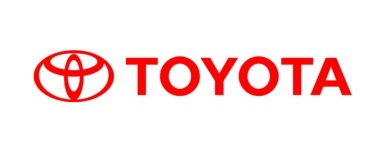Now that the count is in for 2013, the numbers are official. Toyota Motor Corp. (NYSE: TM) was the No. 1 car company in the world. It is quite a comeback from the factory destruction caused by the great 2011 Japanese earthquake and millions of recalls that eventually had CEO Akio Toyoda hauled before Congress and questioned about the safety of his company’s vehicles.
Reuters tabulated data that show the Japanese car manufacturer’s sales rose 2% to 9.98 million vehicles. General Motors Co. (NYSE: GM) followed with a 4% improvement to 9.71 million vehicles. Volkswagen was third with an increase of 5% to 9.70 million. At those rates, GM could fall into the third spot in 2014.
While a weak yen gave Toyota an advantage over its non-Japanese rivals, that is only part of the cause. Toyota has regained its reputation for quality. In the United States, this was shown with high scores in carefully watched research data from Consumer Reports and J.D. Power. Toyota’s sales rank it third in the U.S. behind GM and Ford Motor Co. (NYSE: F). Notably, Volkswagen’s sales in America have languished.
The AECA reports that in 2013, in the crippled market of Europe, Toyota’s sales dropped a mere 0.2% while overall sales in the region were off by 1.7%. VW, the largest car maker in the region, lost 0.6% of its sales. GM was staggered by a drop of 4.3%. The U.S. company has been unable to turnaround its buckling Europe operations.
GM and VW hold a substantial lead in China, the world’s largest car market. Each, along with joint venture partners, sold more than 3 million cars last year in the People’s Republic. Toyota lags with less than one million. Because the Chinese car market is so huge, Toyota likely will have to do better there to keep its global position.
Among Toyota’s advantages is its broad range of vehicles, which run from it Lexus luxury brand to the Prius, the best-selling hybrid in the world. The Japanese car company offers 23 models in the United States, excluding Lexus models — a number that second-tier manufactures like Chrysler find they cannot match.
Toyota, overcoming tremendous hurdles, has moved back on top.
Are You Still Paying With a Debit Card?
The average American spends $17,274 on debit cards a year, and it’s a HUGE mistake. First, debit cards don’t have the same fraud protections as credit cards. Once your money is gone, it’s gone. But more importantly you can actually get something back from this spending every time you swipe.
Issuers are handing out wild bonuses right now. With some you can earn up to 5% back on every purchase. That’s like getting a 5% discount on everything you buy!
Our top pick is kind of hard to imagine. Not only does it pay up to 5% back, it also includes a $200 cash back reward in the first six months, a 0% intro APR, and…. $0 annual fee. It’s quite literally free money for any one that uses a card regularly. Click here to learn more!
Flywheel Publishing has partnered with CardRatings to provide coverage of credit card products. Flywheel Publishing and CardRatings may receive a commission from card issuers.
Thank you for reading! Have some feedback for us?
Contact the 24/7 Wall St. editorial team.




